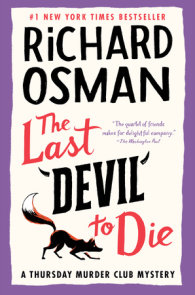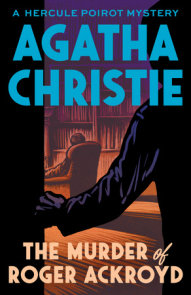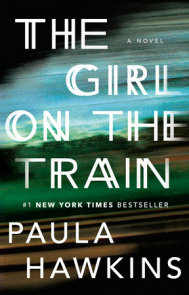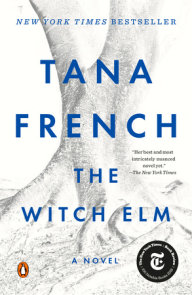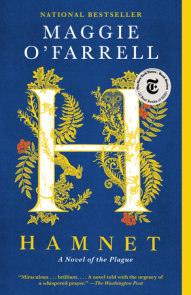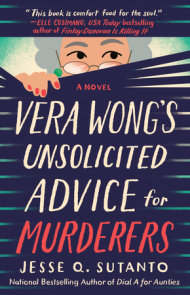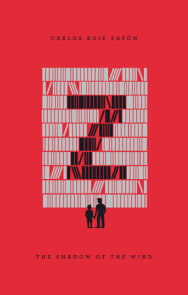READERS GUIDE
AN INTRODUCTION TO THE MAN WHO DIED TWICEWhen Richard Osman—the hilarious and charming British television personality, quiz genius, and New York Times bestselling author—burst onto the literary scene with his debut mystery, The Thursday Murder Club, readers fell in love with the colorful cast of characters and Osman’s warm, witty humor.
Now, Osman returns with a rollicking new adventure in The Thursday Murder Club series: The Man Who Died Twice. Their quiet retirement village is once again awash in murderers, criminals, spies, and the like, and our four senior sleuths—Elizabeth, Joyce, Ron, and Ibrahim—are on the case.
The Man Who Died Twice begins when Elizabeth receives an unexpected letter from a long-ago colleague—someone she thought was actually already six feet under. He’s made a big mistake, and he needs her help. But that big mistake involves stolen diamonds, a violent mobster, and a very real threat to his life. As bodies start piling up, Elizabeth enlists Joyce, Ibrahim, and Ron in the hunt for a ruthless murderer. Once again, the Thursday Murder Club must set aside their G&Ts and lemon drizzle cake to avert disaster—can the gang find the killer (and the diamonds) before the killer finds them?
A CONVERSATION WITH RICHARD OSMAN
Readers fell in love with your first book, the international bestselling mystery: The Thursday Murder Club. What can they expect from The Man Who Died Twice?
Well, everybody who survives the first book returns, so whoever your favorite character is, they’ll be back causing trouble once again. The tension really ramps up in this one, so hopefully readers will still find plenty of laughs, and plenty of tears, but there is plenty of danger too. I can also promise a real cracker of an ending!
Nothing seems to slow down our septuagenarian sleuths. What appeals to you about having your detectives be elderly? Do you ever worry about throwing too much murder and mayhem at them?
Having four characters in their seventies was an absolute joy from the very start. The idea that we underestimate older people is the key to The Thursday Murder Club. My four detectives might look gentle and harmless on the outside, but they are far from that on the inside. And, as people will read in the books, all four of them are overlooked and underestimated throughout—by suspects, by cops, by everyone. They use this to their advantage in a number of ingenious ways.
They also have a lifetime of experience to draw on, so their former jobs were very useful in this respect. Elizabeth used to be a spy, so there is nothing she hasn’t seen, no trick anyone can pull that will get past her. She is utterly ruthless. Joyce used to be a nurse, so she has spent her life around death, and pain, and grief. Ron is a former labor activist, and he will argue about anything with anyone, and will never back down. And Ibrahim was a psychiatrist, a thinker, an organizer, and is the type of man who will always spot things that others might miss. They are not self-conscious, they are not frightened by death, and they are not frightened about the consequences of their actions.
Did your experience working on the first book in the series—and especially the public’s warm reception—change how you approached the second book? Or did you already have a plan in place for Elizabeth, Joyce, Ron, and Ibrahim?
The plan was already in place as I was writing the first book. I don’t want to write a series where The Thursday Murder Club just keep coincidentally stumbling upon new corpses, so I made sure the events of book one cause the events of book two to happen naturally. Something Elizabeth does in The Thursday Murder Club leads directly to the mayhem in The Man Who Died Twice. At the very end of the first book, somebody slips a note under Elizabeth’s door, and at the very beginning of The Man Who Died Twice we discover exactly who the note is from, and what it says.
There is a great tradition of British crime writers, and you wrote that “everyone in Britain is a potential murderer.” What is it about England that inspires so many excellent whodunits?
I think because British people have been raised to be so polite and to never lose their temper, we all eventually become a simmering ball of rage and explode into being murderers before going back home and making ourselves a lovely cup of tea. If you ever ask someone British if you have done something to offend them and they reply “no, not at all” then take care, they are about to murder you.
Has your experience in television, and specifically as the host of quiz shows like Pointless and Richard Osman’s House of Games, affected how you structure your novels?
People will read maybe thirty pages of a new book before making their mind up. They’ll probably watch about thirty seconds of a new TV show, before switching over to Grey’s Anatomy reruns. So in a TV quiz, you grab people quickly, you explain the rules quickly, you give viewers a reason to stay to the end (Who’s going to win? How much?), and then you give them a host and contestants who they want to spend a bit of time with.
I suppose that’s naturally how I went about writing. Grab them, then entertain them, and then give the answer they were looking for. I worry that if I started describing the color of the sky for a page and a half, people would simply put the book down and watch Judge Judy instead. And I wouldn’t blame them.
The New York Times called your novels and TV programs “defiantly mainstream.” How are you so tapped into what consumers want in their entertainment?
I think it’s just my natural taste. I never think, “I wonder what people would like to watch or read?” I just think, “What do I like to watch and read?” It makes life a lot simpler. I sometimes wish I could do cool or edgy, but I can’t. What I hopefully can do is funny, thrilling, and moving. And that’s a combination I like, and a combination that viewers and readers like too.
If you were a resident of the Coopers Chase Retirement Village, what would your role in The Thursday Murder Club be?
I like to think that if I lived at Coopers Chase I would watch soccer with Ron, do crosswords with Ibrahim, discuss state secrets with Elizabeth, and flirt with Joyce over a nice piece of lemon drizzle cake.
QUESTIONS AND TOPICS FOR DISCUSSION
1. The novel kicks off when Elizabeth is reunited with her ex-husband, Douglas, who admits to stealing twenty million pounds’ worth of diamonds. Where did you think Douglas hid the diamonds? Were you correct?
2. What do you think you and your friends would do if you stumbled across twenty million dollars? How would you split it? What’s the first thing you would buy? What do you think your friends would buy? What charities would you support?
3. Ibrahim is accosted by teenagers while out on the town by himself, a traumatic event that lands him in the hospital and ultimately results in him completely withdrawing from his friends’ outings. As he recovers, Ibrahim thinks to himself: “They say a man who desires revenge should dig two graves, and this is surely right.” What do you think he meant by this?
4. Once more, Elizabeth somehow seems to be ten steps ahead of everyone else. Did you doubt her instincts at any point? If so, why? What makes her such a good leader for the group? Who would you rather have on your side, Elizabeth or Bogdan?
5. Have you ever been lonely in a new town? How did you overcome it?
6. Did you suspect Joyce’s friendship bracelets would play the role they did in solving the mystery of the missing diamonds? What about the locket? When did you know, and why?
7. Who is your worst ex?
8. How do you think the dynamics of the Thursday Murder Club shifted once Ibrahim stepped back after his assault? Did the Club’s relationship with Donna and Chris or Bogdan change in any way? Discuss.
9. Do the books in the Thursday Murder Club series make you want to visit England, or avoid it at all costs?
10. Did you guess how the dead-letter drops would be used in the novel? If you had to hide something, what would you use for a dead-letter drop?
11. Who did you think was behind the murders? Were you correct?
12. Would you be happy with a dog named Alan? What is an acceptable name for a pet, and what is unacceptable?











